Publications
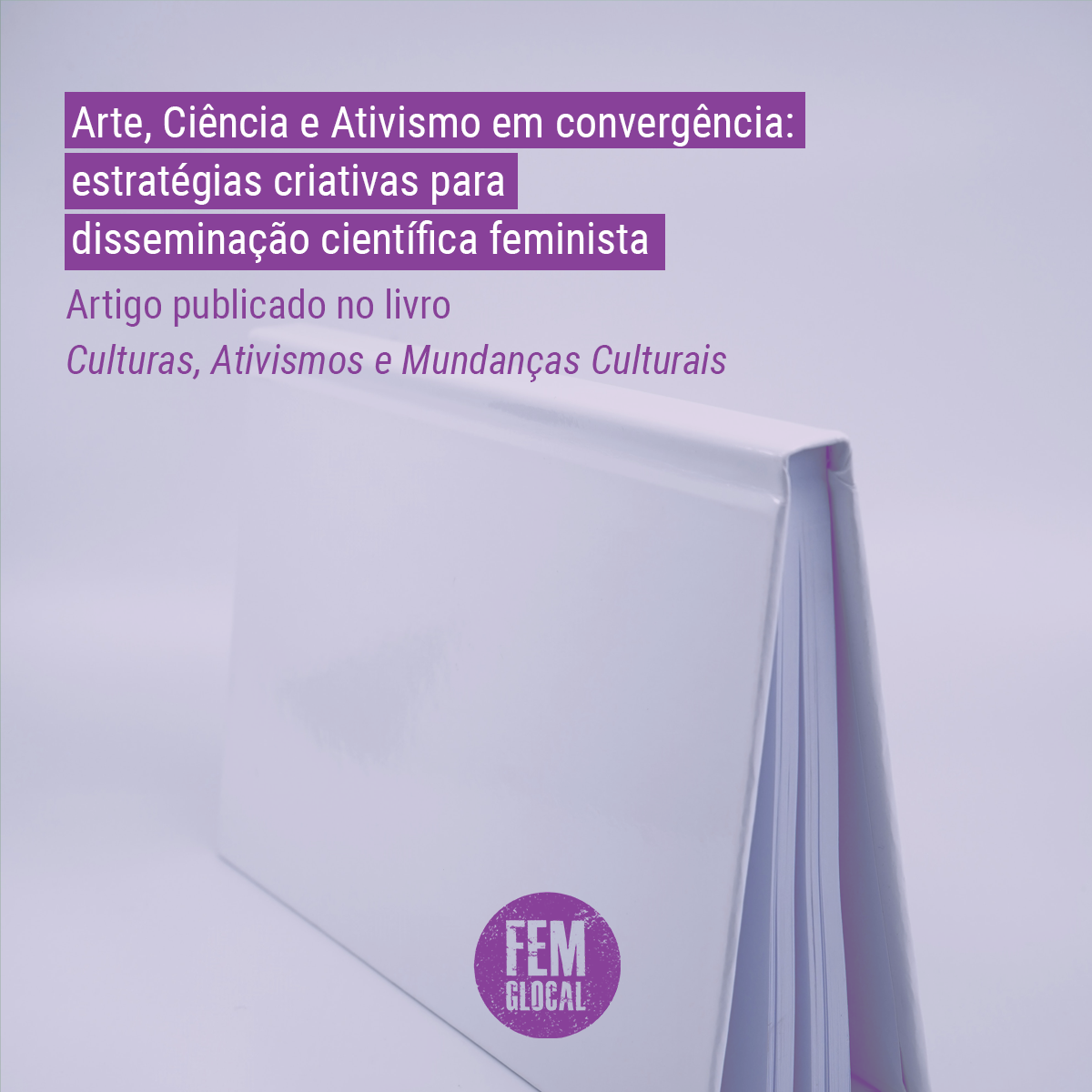
Art, Science, and Activism in convergence: creative strategies for feminist scientific dissemination
In M. M. Baptista; A. R. A. de Almeida & H. C. G. Ferreira (Org.), Culturas, Ativismos e Mudanças Culturais, 2024, (pp. 247-255), Centro de Línguas, Literaturas e Culturas - CLLC.This article aims to explore the intersection of art, activism and science, reflecting on how these areas can contribute to promoting social change. Art and activism are important tools for creating spaces of speech for marginalized voices and vulnerable communities, as well as for disseminating and amplifying the results of scientific research, making academic concepts and project outcomes more accessible to diverse audiences. The FEMglocal – Global feminist movements: interactions and contradictions research project seeks to recover the historical memory of feminisms in Portugal and analyze the invisibilities that feminist movements have faced in the country. To broaden the reach of its findings, giving them visibility and reaching audiences beyond academic circles, the project has invested in creating diverse and creative outputs that combine the power of art, activism and communication. The podcast Feminismos em Ação [Feminisms in Action] emerges as a platform for critical discussion on feminist activism, both local and global, and as a repository of the History of feminist movements in Portugal. The FEMglocal documentary, on the other hand, presents an intersectional narrative of feminisms in the country, revealing stories and voices that have been forgotten or rendered invisible. Both mediums aim to inspire critical thinking, promote dialogue, and contribute to a more inclusive future regarding gender equality and human rights. Recognizing the power of artivism, which merges artistic imagination with political engagement, this article reflects on the role of artivism as a means of scientific dissemination and as a catalyst for social and cultural change.
Citation:
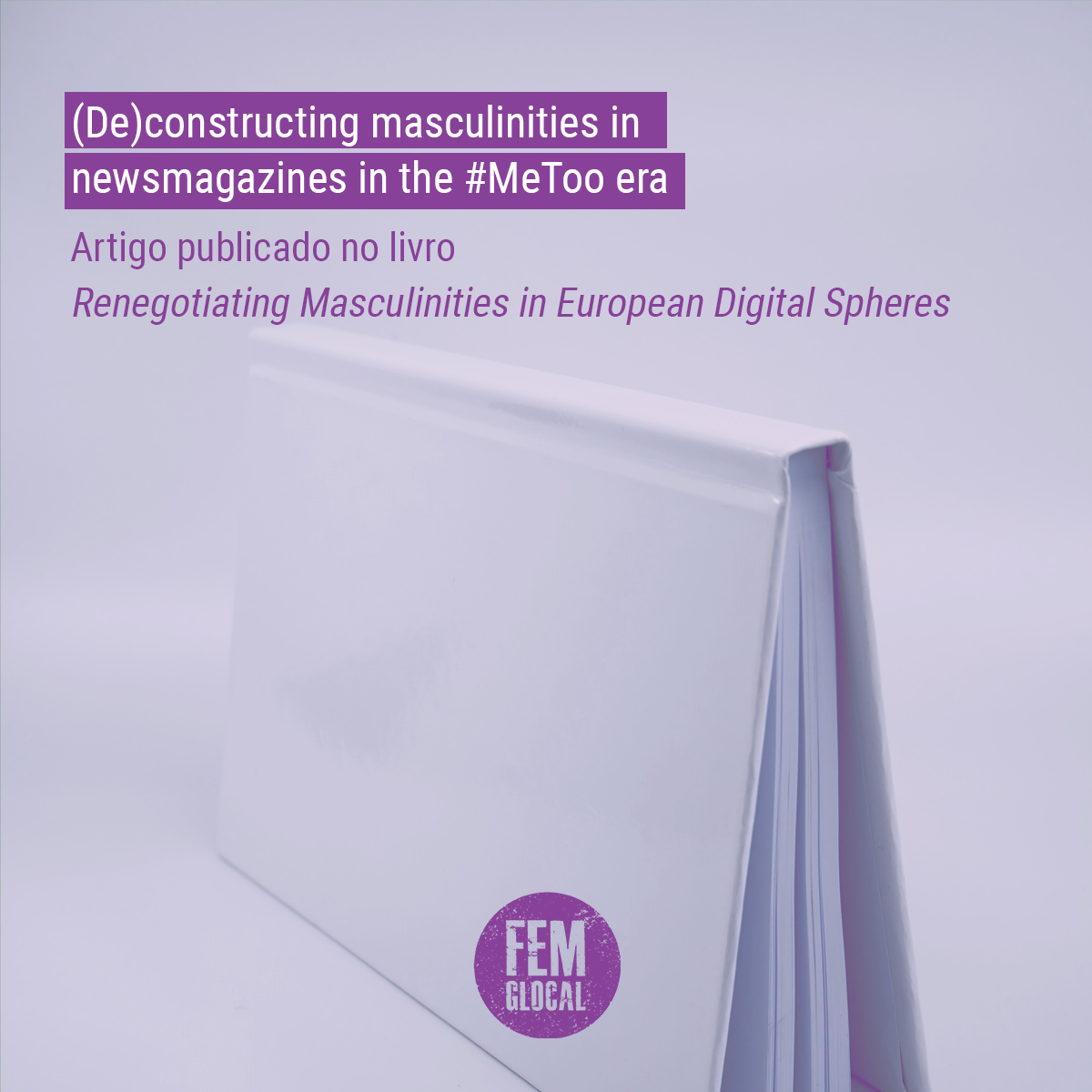
(De)constructing masculinities in newsmagazines in the #MeToo era
In I. Amaral, R. B. de Simões, & S. J. Santos (Eds.), Renegotiating masculinities in European digital spheres (pp. 35-53). Routledge.Originating as a digital feminist movement on Twitter, #MeToo sparked conversations on sexual harassment and violence against women, prompting critical reflections on underlying gender power dynamics and prevailing conceptions of hegemonic masculinities. This chapter analyzes how masculinities are discussed in Portuguese mainstream media coverage of the #MeToo movement, focusing on opinion-based journalism in the newsmagazines Sábado and Visão. Using thematic analysis on 16 opinion pieces, two main themes were identified: Models of Masculinities and #MeToo: a “revolution.” Our findings reveal a limited emphasis on discussions about masculinities and their critical examination in Portugal, suggesting hesitance to challenge patriarchy and deconstruct hegemonic masculinities.
Citation:
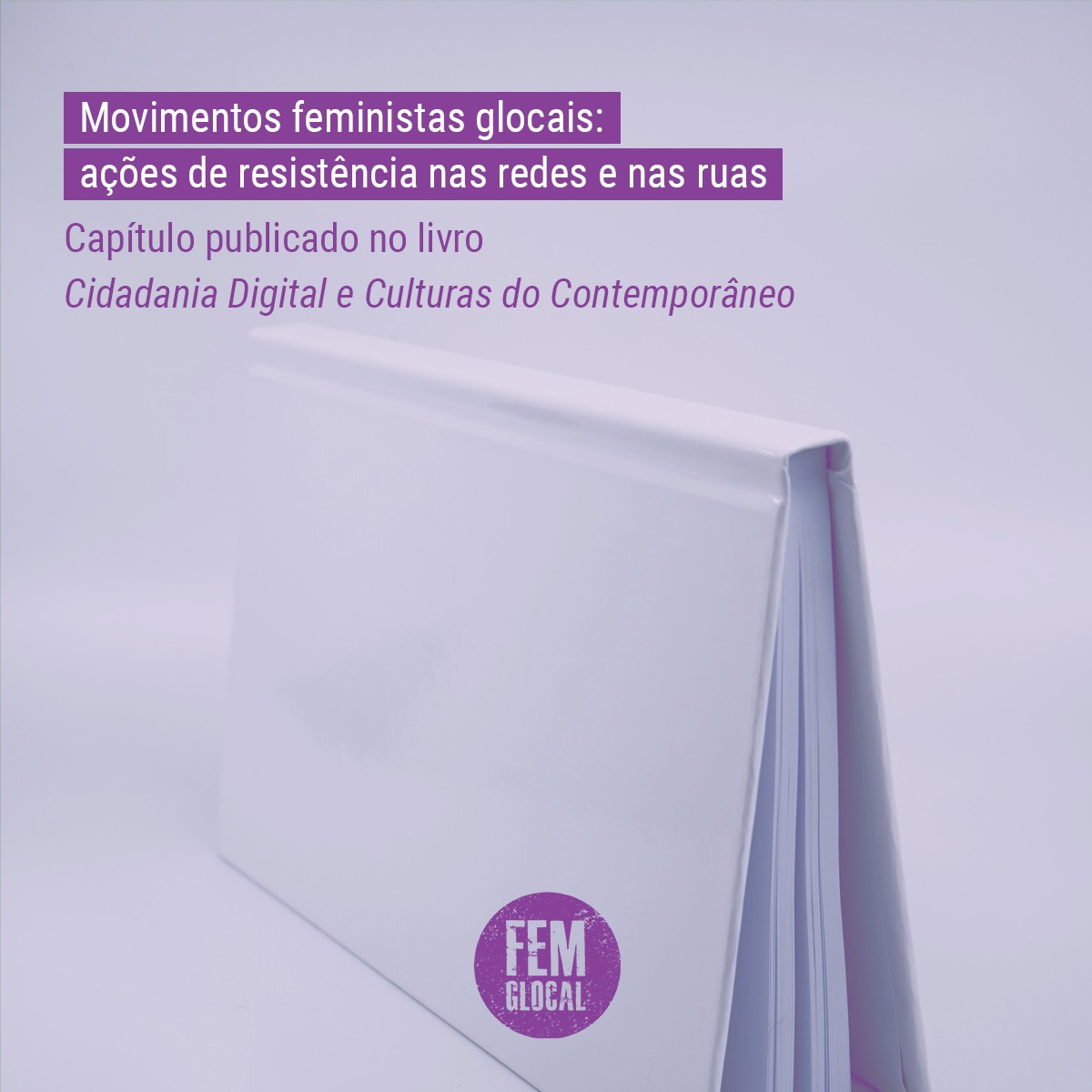
Movimentos feministas glocais: ações de resistência nas redes e nas ruas
In G. Borges, R. A. Grácio, & O. Ribeiro (Orgs.), Cidadania digital e culturas do contemporâneo (pp. 83-92). Grácio Editor.“Movimentos feministas glocais: ações de resistência nas redes e nas ruas” (Glocal feminist movements: resistance actions online and in the streets) examines the #MeToo movement as a key example of transnational feminist activism. These “new” movements, blending digital and street activism, reveal the complexities of studying “glocal” feminisms, which function on both local and global scales. Digital platforms help feminist movements cross borders, sharing personal stories through hashtags that gain collective, international dimensions. This synergy between online and street activism challenges patriarchal norms and amplifies marginalized voices. The chapter discusses the #MeToo movement’s nuances, potential, and limitations in reclaiming silenced voices and addressing sexual harassment and violence through collective action. Informed by situated knowledge (Haraway, 1988, 1995), it also explores the movement’s local impact in Portugal, its challenges, and the sociocultural changes it sparks.
Citation:
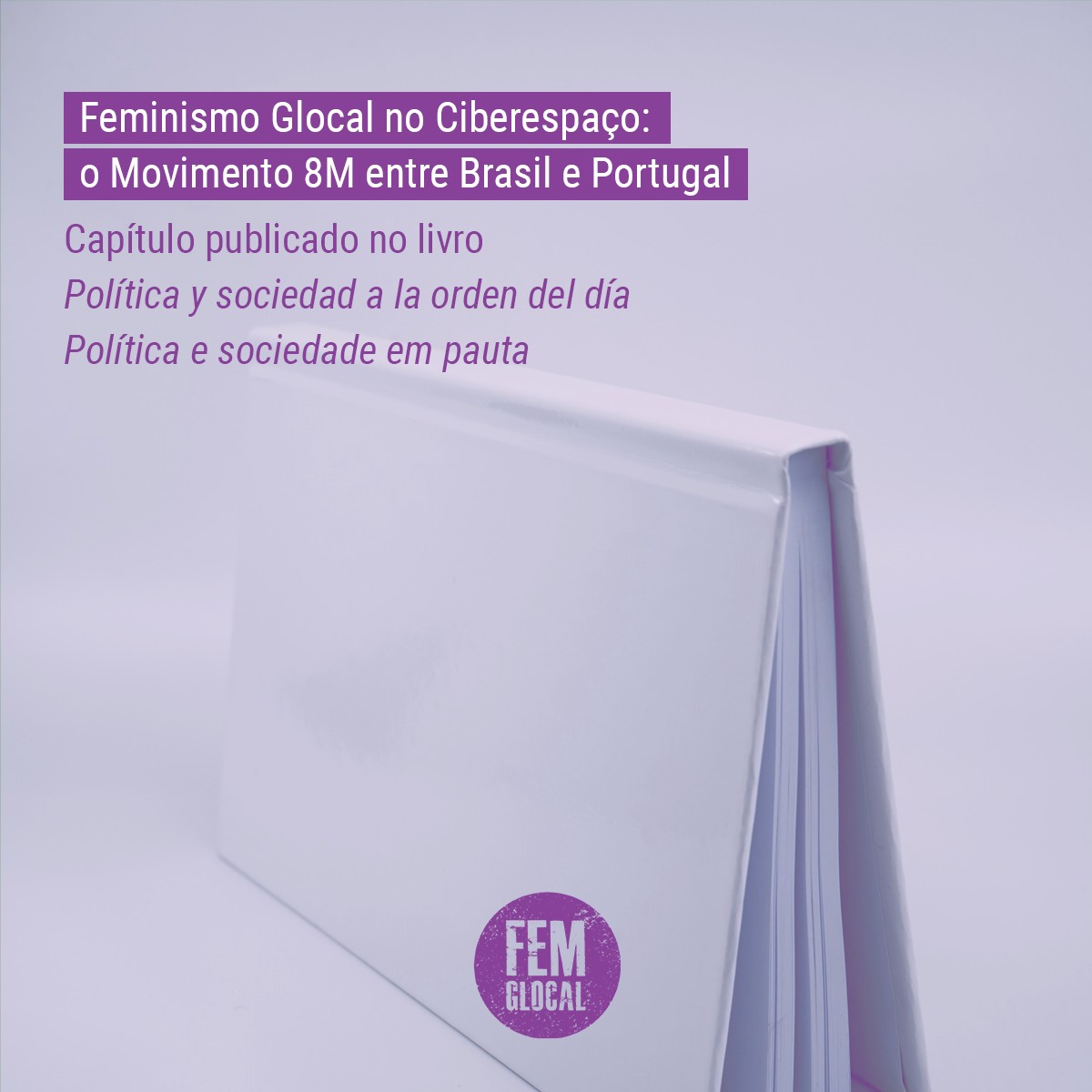
Feminismo Glocal no Ciberespaço: o Movimento 8M entre Brasil e Portugal
In L. Panke & A. E. Marquez (Eds.), Política y sociedad a la orden del día (pp. 11-22). BUAP.The chapter presents a comparative netnographic analysis of the digital social networks of organizations leading the Feminist Strike on Instagram in Portugal (@rede8demarco) and Brazil (@amb_feminista) between January and April 2021. The analysis explores how feminists in both countries use digital platforms to shape the Feminist Strike and contribute to broader feminist discourse, highlighting the particularities, similarities, and differences in their approaches. Furthermore, the chapter reflects on the fourth wave of feminism, examining the transnational and intersectional dimensions of Portuguese and Brazilian feminist movements and their expression within the context of the Feminist Strike.
Citation:
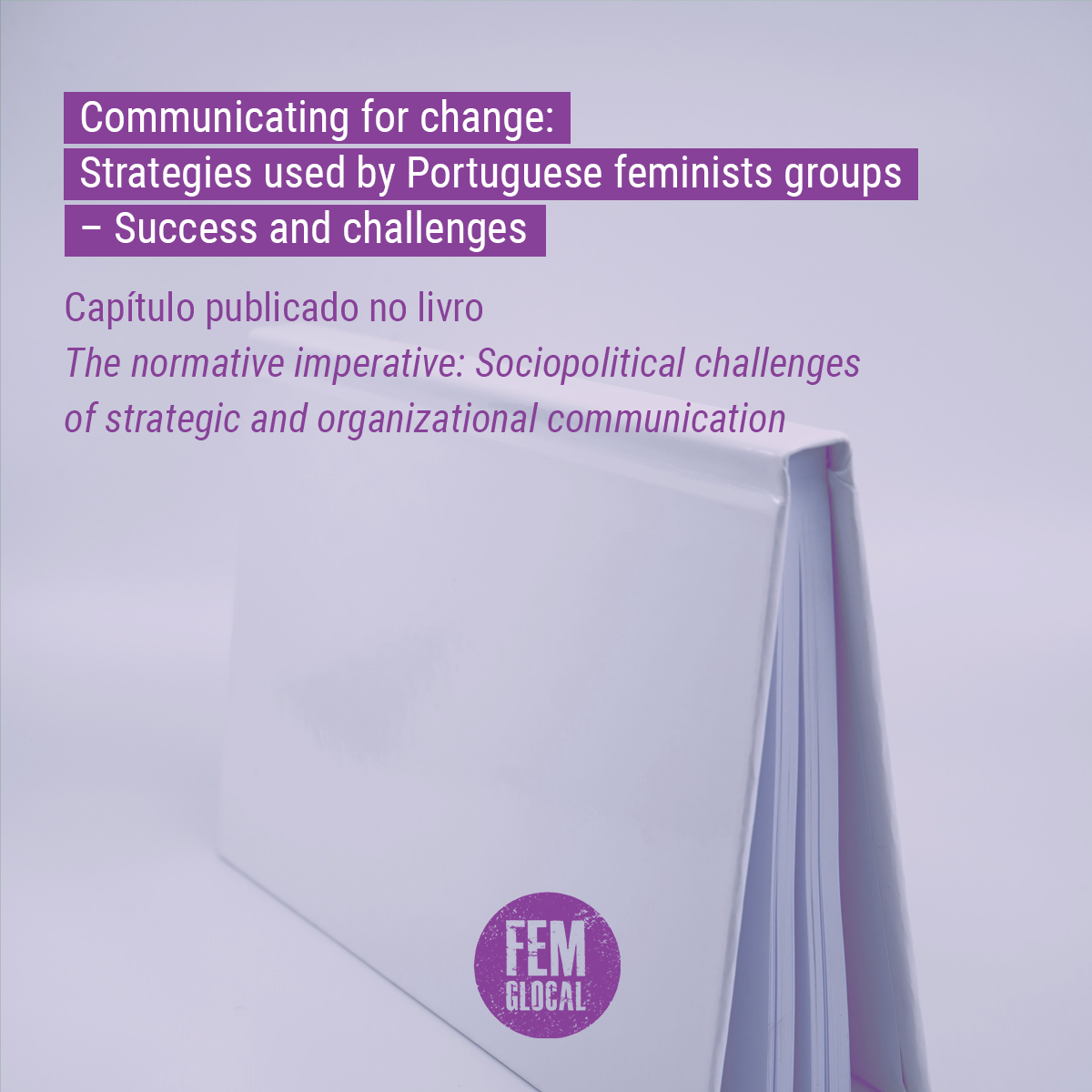
Communicating for change: strategies used by Portuguese feminists groups – Success and challenges
In E. Oliveira & G. Gonçalves (Eds.), The normative imperative: Sociopolitical challenges of strategic and organizational communication (pp. 265-275). LabCom Books.The chapter examines the communication strategies employed by Portuguese feminist movements, with a particular emphasis on the role and effectiveness of social networks and digital spaces in their activities. Within the context of Portugal’s sociopolitical and cultural landscape - shaped by the lingering influences of a long-standing dictatorship and prevailing conservatism - the study seeks to explore how feminist groups, associations, and collectives engage with the public sphere. The analysis addresses key questions, such as the resistances these movements encounter, the nature of media coverage they receive, their capacity to influence public discourse, and the mechanisms through which they disseminate their agendas.
Citation:
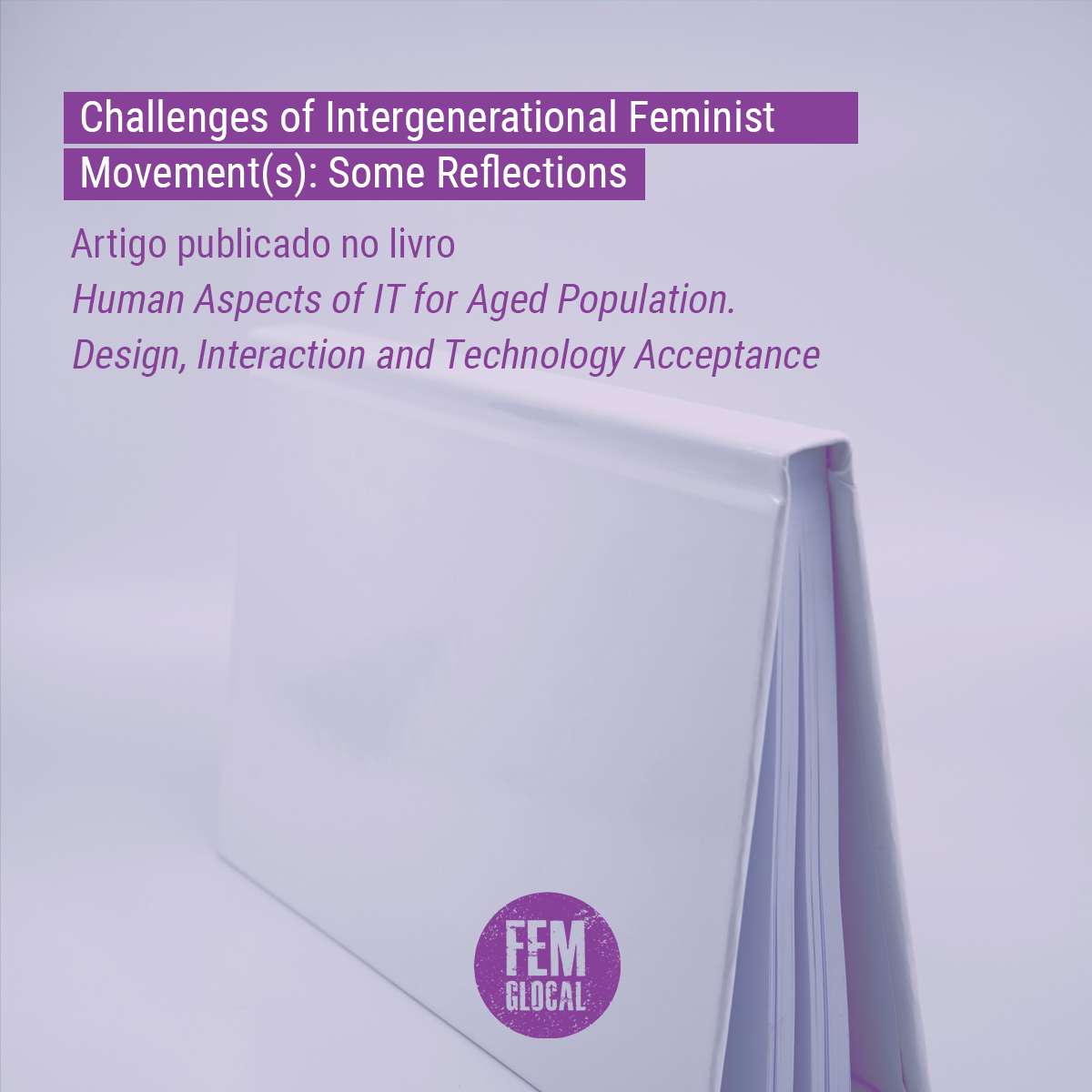
Challenges of the Intergenerational Feminist Movement(s): Some Reflections
In Q. Gao & J. Zhou (Eds.), Human Aspects of IT for the Aged Population. Design, Interaction and Technology Acceptance: 8th International Conference, ITAP 2022, Held as Part of the 24th HCI International Conference, HCII 2022, Virtual Event, June 26 – July 1, 2022, Proceedings, Part I (pp. 265–275). Springer.This paper focuses on the feminist movement(s) today and the controversies that tend to permeate the notions of “waves” and “(inter)generations”. It falls within the scope of feminist media studies, in a line of approach that seeks to traverse feminist activisms and their communication strategies, including mainstream and alternative media and the digital and offline spaces of interaction.
Throughout history, feminist movements have conducted several protests worldwide. Feminism has been asserting itself since the 19th century and its struggles have evolved, with current studies pointing to the existence of three “waves” of the feminist movement, each corresponding to different demands and conquests of rights for women. Some research, however, foretells the emergence of a fourth “wave” of the feminist movement, marked by the digital world, transnational demands, intersectionality, an intergenerational approach and the inclusion of new agendas and performance repertoires.
In this paper, we will question the “wave” narrative to explain the inception and evolution process of the feminist movement and the challenges of intergenerational feminist movement(s) nowadays. This is a critical reflection, anchored in international scientific literature, that intersects feminist activism and the sphere of (online and offline) communication and the media. We will also include examples of feminist movements/initiatives/protests/projects how demonstrate nowadays it is crucial to talk and understand what the idea of “intergenerational feminisms” can mean, and what are its impacts in strategies of mobilization in diverse spaces and platforms.
Citation: